If you’re looking to install new countertops in your kitchen, you’re not alone – 95% of homeowners looking to renovate say that “kitchen countertops are their top priority this year”.
This consumer buying guide covers top 15 countertop options, along with each material’s pros and cons, and the average cost to install.
-
Granite countertops
What it is: You probably already know! Granite is a natural stone countertop material which has been highly prized in the kitchen for many years. It is available in a wide variety of colors and blends well with many different flooring and wall designs.
Granite countertops are becoming more and more common thanks to their increased availability and affordability.
What it costs: Granite can be expensive. Prices between $85 and $175 per square foot installed are not uncommon, depending on the size, color, thickness, and pattern of the granite slab, manufacturer/supplier and installer, and where you live.
Pros: Because granite is highly sought after and considered beautiful, the countertops will add non-depreciating value to your home. It is non-porous and sanitary, heat-resistant, and easy to clean. It does not get scratched easily.
Cons: Granite is very difficult to remove, and should be considered a “forever” upgrade, because you may have to rip out the entire counter if you get sick of it. It is expensive when compared to other common countertop materials.
It is also labor-intensive because it is so heavy, which means that it may require additional structural support than what your counters already offer. It must be sealed roughly every 10 years or so to prevent staining, and it can crack if hit by a large, heavy object.
-
Quartzite countertops
What it is:
Not to be confused with countertops labeled “quartz” – which are a kind of manmade composite, consisting of about 90% quartz and 10% resin – quartzite is a relatively new solid-stone alternative to granite or engineered quartz countertops.
Quartzite is a naturally occurring rock that starts its life as a kind of sandstone and evolves into quartzite when subjected to heat and pressure. The resulting white or gray rock tends to have beautiful streaks of color, giving it the look of marble while maintaining the toughness of granite.
A word of caution, however – the term tends to be used somewhat loosely by manufacturers, so it is important to check with your supplier to find out if your quartzite is “hard” or “soft” quartzite, which will affect how durable the material is, and how often routine sealing must be done to care for it.
What it costs: $85 to $150 per square foot installed, depending on the type of quartzite you choose and where you live.
Pros: The neutral colors of quartzite look nice against almost any kitchen color scheme. Its natural swirl patterns lend a clean, modern, organic look. It is somewhat heat resistant (although protection should be used if you intend to leave a hot pot sitting for a while).
Did you know? Quartzite is also harder than granite, making it a little more durable.
Cons: Depending on the type of quartzite, periodic sealing must be done (as with any stone surface) to avoid staining. Also, because it is a heavy stone, it requires professional installation.
-
Recycled glass countertops
What it is: Becoming more popular among people seeking an eco-friendly solution to countertop materials – or people out for a unique, whimsical look in their home – recycled glass countertops consist of fragments of recycled glass held together with a binder, usually cement or resin.
What it costs: Recycled glass countertops run anywhere from $75 to $100 per square foot, plus around $80-$150 per hour for the installation, which results in the average cost of about $85 to $150 per square foot installed, depending on the project size and complexity – slightly higher than typical granite or quartz.
The price of your installation may vary depending on whether you need backsplashes, seams, sink cut-outs, or upgraded or curved edges. Also, some colors of recycled glass are more expensive than others.
Pros: Every recycled glass countertop is unique because a different blend of glass is used in each one. They are very tough and won’t chip easily and require only soap and water to clean. Depending on the binder used, recycled glass can be very environmentally friendly – or not so much, as some binders are made with toxic chemicals.
Cons: Cement-based composites require sealing every 5 years to protect them from stains from acidic foods. Resin-based composites don’t have this maintenance requirement, but also can’t be buffed to the same high sheen. Also, if hit with a sufficiently heavy object, a glass countertop may chip or crack, which can be costly to repair.
-
Soapstone countertops
What it is: Soapstone is a natural stone which takes its name from the soft, almost soapy feel of its surface.
There are two grades of soapstone – artistic and architectural – but only architectural soapstone is suitable for countertop use, as it is much stronger than artistic soapstone. It is naturally gray in color (usually darker gray, although lighter varieties exist) with veins of lighter color running through it.
Soapstone has been used in kitchen countertops for centuries and looks particularly natural in a farmhouse-style kitchen (which happens to be a major design trend).
What it costs: Typically, soapstone countertops run between $75 and $125 per square foot installed, depending on where you live and how thick a slab you want.
Pros: Soapstone’s dark, warm, neutral look goes well with a variety of kitchen designs. It’s fairly pliable, so it is unlikely to crack from too much weight.
It’s very non-porous when compared to other similar surfaces, which makes it extremely unlikely to stain, and therefore it doesn’t require the periodic sealing that many other natural stone countertops require.
Non-porous also means it’s easy to keep clean and sanitary, which makes it a great choice for people who do a lot of cooking with fresh vegetables.
Cons: Because it is naturally soft, soapstone may scratch or chip more easily than other stone materials. It also rarely comes in slabs longer than 7 feet, which means that longer kitchen counters will require multiple slabs and more complicated installation work.
-
Solid Surface countertops (Corian)
What it is: Originally invented by DuPont in the 1960s and marketed under the brand name Corian, solid surface countertops are made from acrylic and polyester blends. They were originally intended to mimic the look of natural stone, while being stronger and non-porous.
When DuPont let their patent expire in the 1990s, a wave of different solid surface materials entered the market, including Hi-Macs, Staron, Hanex, Wilsonart, and Durat, amongst others. These brands mostly use the same recipe – DuPont’s original – but differ in the colors they offer.
What it costs: Around $65 to $95 per square foot installed, depending mostly on the color you select.
Pros: Solid surface countertops offer a wider range of colors and looks than any other material, although none of them are particularly natural looking. They are very inexpensive compared to other countertop materials. They are also extremely low maintenance, not requiring sealants or special cleaning materials.
Cons: Solid surface countertops are not heat-resistant and can burn. They are also vulnerable to scratches and dents. However, they are repairable if damaged. Also, you cannot purchase solid surface countertops directly yourself, so no DIY here: you must go through a licensed dealer and have them professionally installed.
-
Slate countertops
What it is: Slate is a soft, dense natural stone like its cousin, soapstone.
Unlike soapstone, however, slate is non-porous and requires no maintenance. Slate comes in dark, subtle colors and is naturally matte. It is formed from clay and silt which has been compacted over millions of years. This long process creates a durable material well-suited to household use.
What it costs: About $85 to $150 per square foot installed.
Pros: As mentioned before, slate is practically maintenance-free. Because it is non-porous, liquid spills wipe up easily and don’t stain.
This also means it is naturally anti-microbial. It also is durable, resisting chips and scratches, and stands up well to heat. This means you can safely set that hot pan down without worrying about leaving a mark.
Cons: Slate has very few downsides, except that it doesn’t come in a wide range of styles or colors. Also, because the edges of slate counters can be sharp, professionals recommend having the corners rounded off.
-
Tile countertops
What it is: Tile countertops are typically made of ceramic tiles (themselves made of fired clay), which are usually applied to a plywood substrate or on top of an existing laminate countertop, since tile by itself can be too thin for countertop use.
These counters were popular in the 70s and 80s, disappeared for a while, and have recently come back into fashion.
What it costs: Between $35 and $65 per square foot installed.
Pros: Tile comes in many different colors and styles, and it is very heat-resistant, so cooks don’t have to fear putting down a hot pan of muffins on the counter. They are extremely cheap and can be installed yourself if you’re into DIY. And although tiles tend to get cracked or chipped, they can easily be replaced individually without having to buy a new countertop.
Cons: The grout between tiles can collect food and be difficult to clean, resulting in stains. Scrubbing the counters can result in a blurred finish. And as mentioned above, tile is easily cracked by dropping objects.
-
Recycled paper countertops
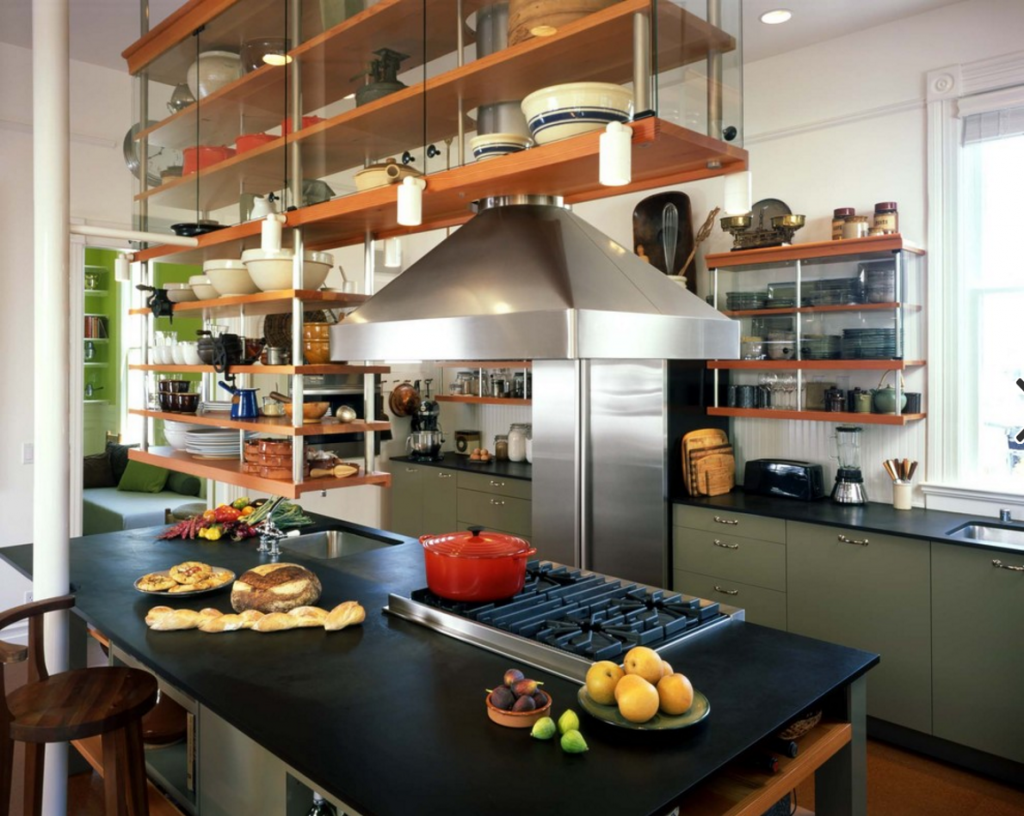 via Actual Size
via Actual Size
What it is: Recycled paper countertops are composite surfaces made up of formaldehyde-free resin, pigment, and – you guessed it – recycled paper. They have a feel that’s soft and warm, and often compared to soapstone.
Recycled paper countertops are typically only available in dark, matte hues, although some companies offer more vivid colors. The most popular recycled paper countertop manufacturer is PaperStone, but they are also made by a variety of other companies, including RichLite, ShetkaStone, and Kliptech.
What it costs: About $45 to $85 installed.
Pros: Because they are made primarily of recycled materials, they are more environmentally friendly than many naturally sourced materials. They are quite inexpensive and are easy to work with and install because of their light weight. They are durable, non-porous, and non-staining. They are also heat-resistant, but only to 350 degrees.
Cons: Recycled paper counters require occasional sealing and cannot tolerate abrasive cleaners. They are not themselves recyclable, although they can be cut up and re-used.
-
Butcher block countertops
What it is: Butcher block countertops are made up of glued strips of hardwood — often maple, but sometimes ash, teak, oak, or even bamboo. These inviting, rustic-looking countertops are rising fast in popularity, as farmhouse-inspired design is trending everywhere.
There are three basic styles of butcher block: end grain, edge grain, or face grain.
Edge grain is the most used for countertops because it is strong and less expensive; it’s created by gluing long boards together on their sides.
By contrast, face grain consists of boards laid flat, which is less suitable for a heavily used kitchen countertop because it is easily susceptible to dents and cuts from chopping.
End grain consists of small blocks arranged so that their ends are visible on the surface (see the picture above). It is gaining popularity as it is extremely resistant to cutting marks, but it is also the most expensive option.
What it costs: Most Butcher Block countertops cost between $65 and $150 per square foot (including installation), but prices can vary widely, depending on your location, the kind of wood you choose, the kind of finish you get, how many square feet of countertop you’re installing, and whether you choose to install it yourself or hire help. On average, the total cost of installing a Butcher block countertop is between $3,500 and $7,500.
Pros: Butcher block countertops look warm and welcoming compared to the cool, sterile look of steel or granite. They can be made of reclaimed or salvaged wood, which drastically reduces their environmental impact.
Unlike other surfaces, nicks and scratches can be repaired through sanding. Plus, wood is naturally anti-microbial. As a bonus, a butcher block countertop can be installed yourself if you’re handy.
Cons: Butcher block requires oiling every six months to keep the wood protected. More seriously, wood countertops in general are not heat or stain resistant. That means you won’t be able to set a hot pan down on them unprotected, and a water ring from a glass without a coaster may become permanent.
-
Concrete countertops
What it is: Countertops made from concrete – generally with pigment added to make them look less like a sidewalk! They are then sealed to make them non-porous and heat/stain resistant.
Concrete countertops have been in style for a while now, especially among people who like that industrial or rustic look, and they don’t appear to be losing popularity.
What it costs: Typically $65 – $125 per square foot installed, but this can vary widely, since concrete countertops are often a DIY project.
Pros: Concrete countertops must be handmade, and therefore can be customized for any project. The ability to mix in pigments or even materials like seashells or glass offers a wide variety of aesthetic choices. Concrete is durable and scratch-resistant and will last for years if sealed and maintained properly.
Cons: Sealing and regular maintenance are necessary due to concrete’s natural porousness, which can lead to easy staining.
-
Stainless Steel countertops
What it is: Countertops made of stainless steel have been the choice of professional chefs for decades thanks to the stain- and heat-resistance of stainless steel and its overall durability. Stainless steel worktops are made of thin sheets of stainless steel fastened to a wood or other backing. Metal in the corners can also be welded to eliminate seams.
Stainless steel comes in different grades and finishes, and the best grade of steel for kitchen countertops is type 304, which is highly scratch resistant and very strong.
Also, the surface reflectivity of a given piece of stainless steel is classified by a number indicating the amount of polish.
The numbering system goes from 0 to 8, with 8 being the most polished finish, but also reflecting the most scuffs and fingerprints. A middle finish (e.g., #4) would be ideal for looking shiny without advertising imperfections.
Finally, the thickness of the steel is also rated by gauge, where lower numbers indicate thicker steel, better for heavy use; 16 and 18 gauge are the most common in-home settings.
What it costs: Between $75 and $150 installed, depending on the gauge of steel.
Pros: Stainless steel is the most durable countertop material and the hardest. It will stand up to many impacts that would damage another surface. It takes heat better than most countertops. It integrates nicely with stainless sinks. It also won’t change color over time (called developing a patina), unlike many natural surfaces and most other metals. Plus, it’s completely recyclable!
Cons: Bleach and chloride can easily damage stainless steel. It’s not a budget option, and it’s very loud when setting pots and pans down. And the cold aesthetic may not be for everyone.
-
Reclaimed wood countertops
What it is: On the other end of the warmth spectrum from stainless steel, we have the natural beauty of wood countertops. Wood countertops come in a variety of types of wood – from black walnut to bamboo – but a recent, eco-friendly trend is to use reclaimed wood: wood that’s been salvaged from a prior use, like in a house, barn, or other structure.
What it costs: Prices vary widely from supplier to supplier. In general, ordinary wood countertops run $100 to $175 per square foot installed; expect to pay slightly more.
Pros: Most importantly, reclaimed wood is sustainable. Wood is naturally more sustainable than minerals like granite because wood is renewable, but reclaimed wood is a recycled renewable resource, which makes it even more environmentally sound.
Using reclaimed wood can potentially make your project LEED or FSC certified, qualifying your home for special tax benefits.
Second, reclaimed wood has a unique appearance because it typically contains more than one species of wood, and the pieces have generally been weathered for many years. This lends a rustic or historical look to your kitchen design.
Also, reclaimed wood is more durable than ordinary wood countertops due to having been exposed to the elements for many years.
Cons: Reclaimed wood is scarce because its popularity is so high right now, and as a result, it is more expensive than ordinary wood countertops. It also may have undesirable imperfections or have been treated with toxic chemicals in the past – which would be almost impossible to determine.
-
Engineered stone (Quartz) countertops
What it is: Sometimes known as “engineered stone”, what’s called “quartz” on the materials show floor today is actually a composite, consisting of quartz crystals held together with some kind of binder, often resin. They look like natural stone countertops, but these engineered quartz countertops have some additional benefits you can’t get naturally. Those benefits have led to quartz being one of the most popular countertop materials in the past year.
What it costs: About $75 to $150 per square foot installed.
Pros: Quartz has a wider variety of colors available than natural stone, since pigments can be added to the resin. It is hard and durable, and less prone to denting or chipping than quartzite. It also requires very little maintenance, if any.
Cons: Quartz can be scratched, and it melts under temperatures higher than 300 degrees Fahrenheit, which means a hot pad must be used.
-
Marble countertops
What it is: Long considered a sign of luxury, marble is a natural stone created by sediment under pressure, which develops a crystalline structure that allows it to be polished. It is not as hard as its cousin granite, but not as soft as soapstone, either. It can be found in a variety of natural colors, including white, black, gray, yellow, pink, and green, and sometimes with prominent veins of mineral deposits that are considered attractive.
What it costs: Usually between $125 and $200 per square foot, depending on thickness and quality.
Pros: Unique and beautiful, marble is also heat-resistant.
Cons: Because it is very porous, marble must be sealed as often as once a year, and even then, it will likely still stain when in contact with very acidic substances. It is also very vulnerable to scratching.
-
Copper countertops
What it is: Like stainless steel, copper countertops are made of thin sheets of copper fastened to plywood or some other kind of backing.
What it costs: From $100 to $175 per square foot installed.
Pros: The coolest thing about copper is how anti-microbial it is naturally. In one test, E Coli bacteria stayed alive on stainless steel for 34 days but died after only four hours on copper!
It is also beautiful and gives a unique warmth to a room that stainless steel tends to zap. Copper can occasionally be salvaged from scrap yards, making it an eco-friendly choice. Plus, it can be cleaned with a simple mixture of lemon juice and salt. Periodic waxing or oiling will keep it in the best condition but isn’t strictly necessary.
Cons: Over time, copper will naturally oxidize (patina) – it’s a “living” surface that will change color from red to brown to green and gradually dull. For many, this is appealing; for others, this is unacceptable. Also, copper scratches and dents easily.
What material are you planning to choose for your worktop this time?
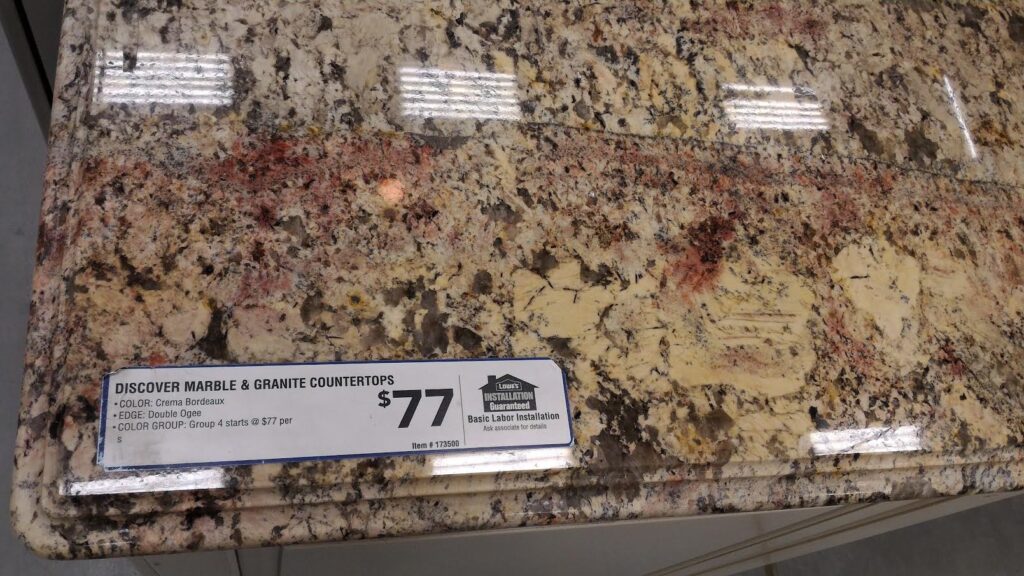
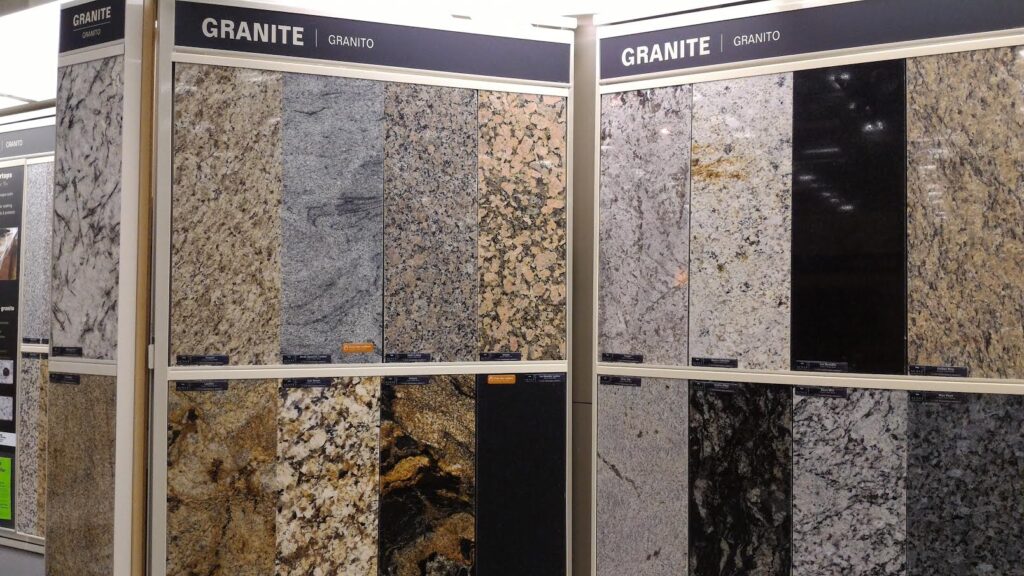
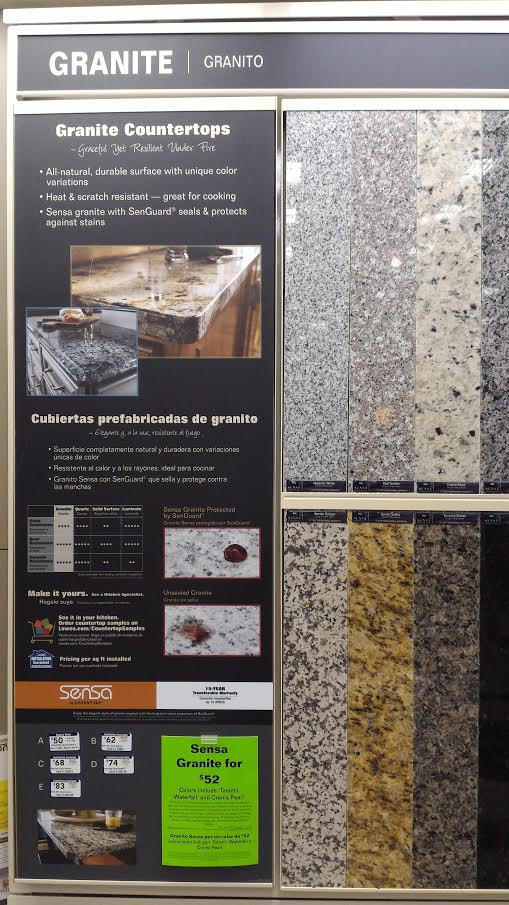
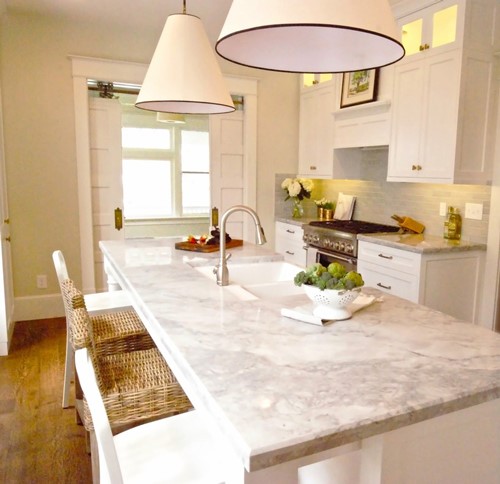
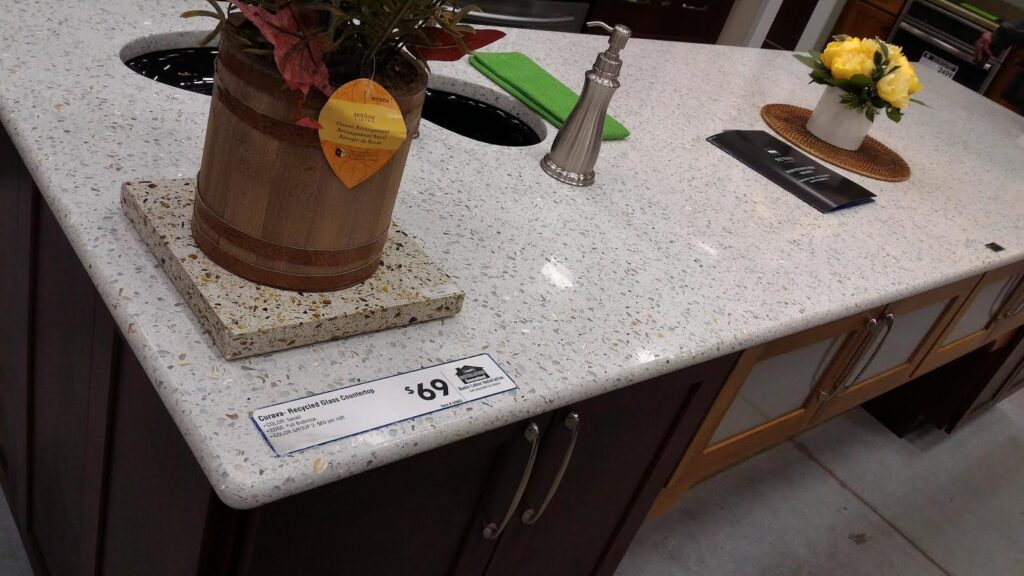
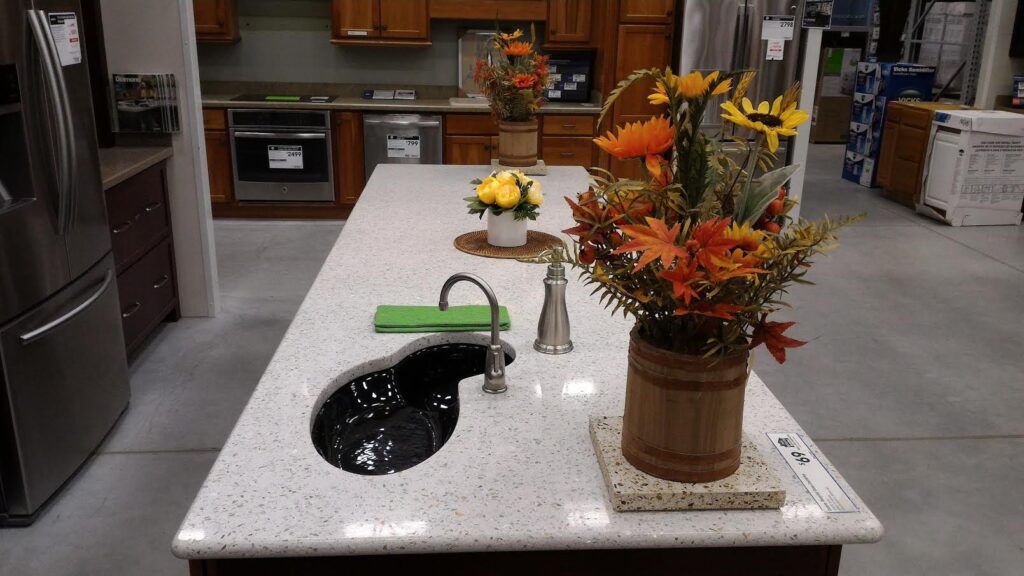
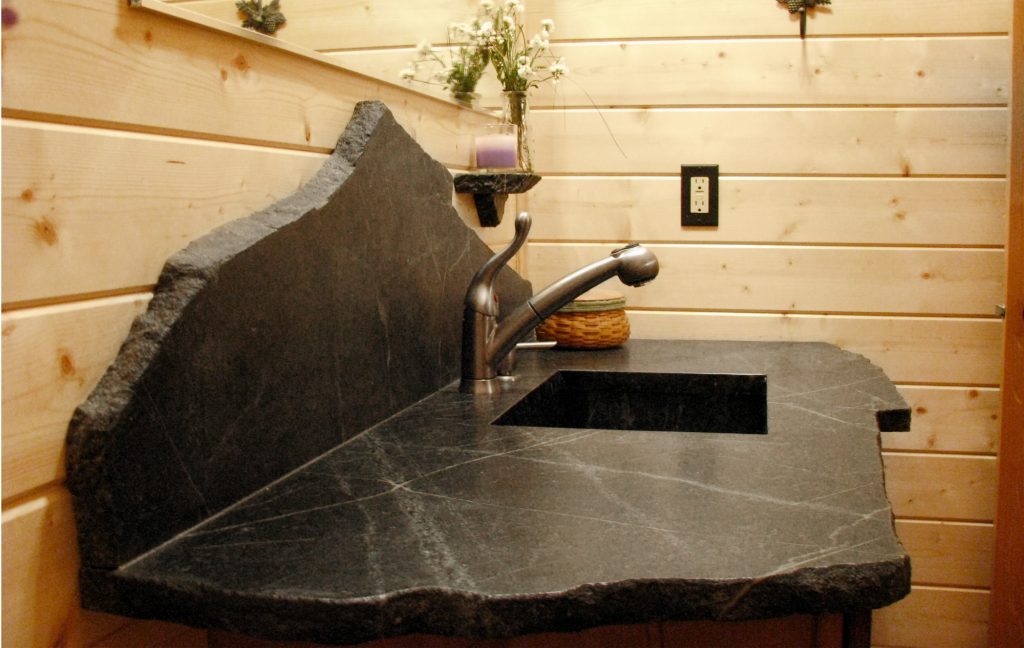
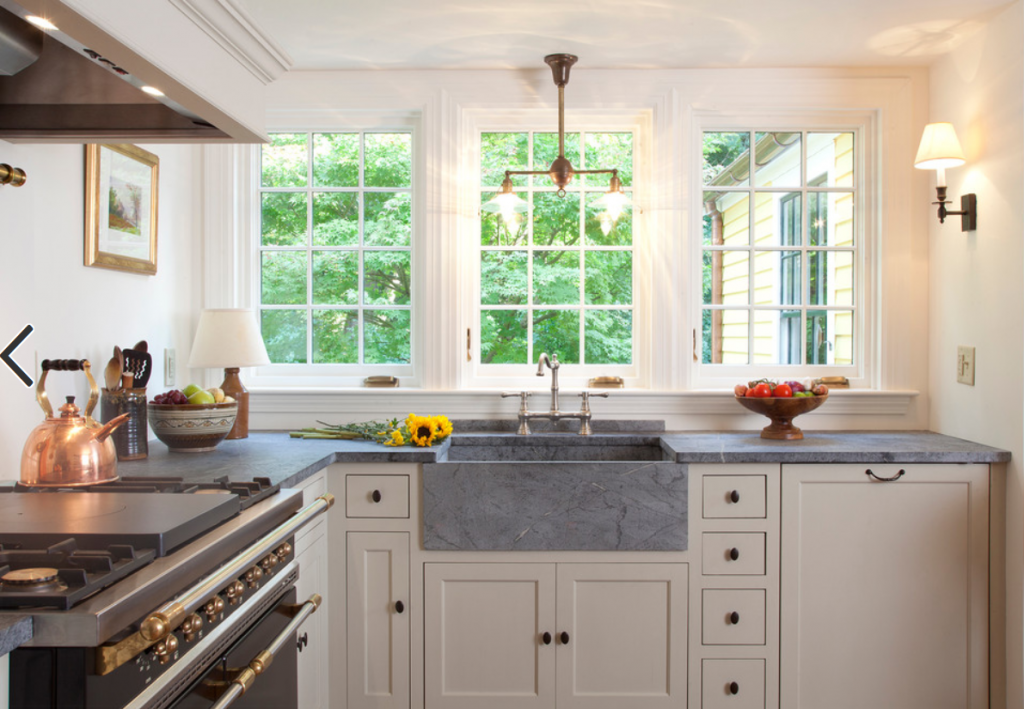
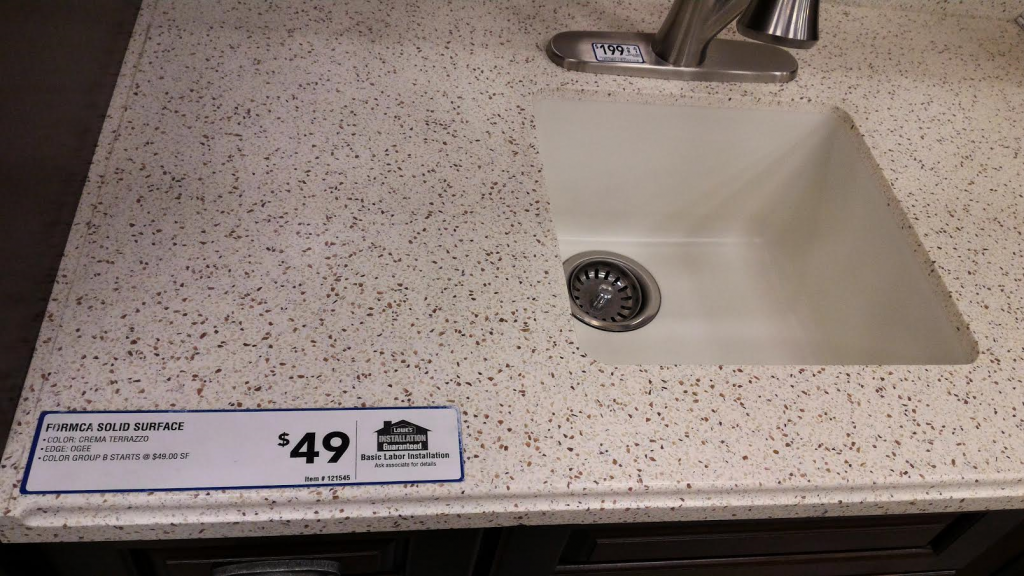
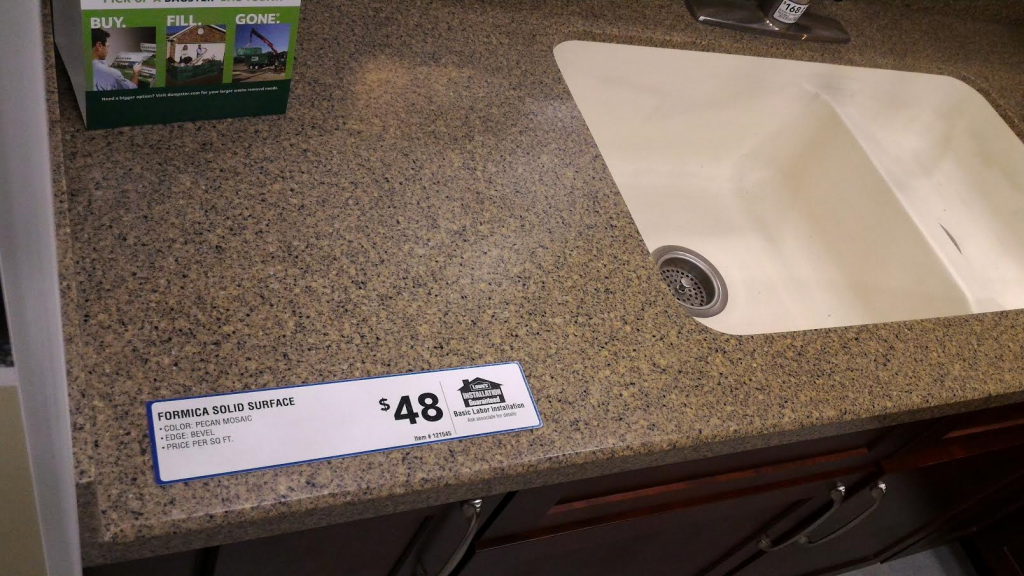
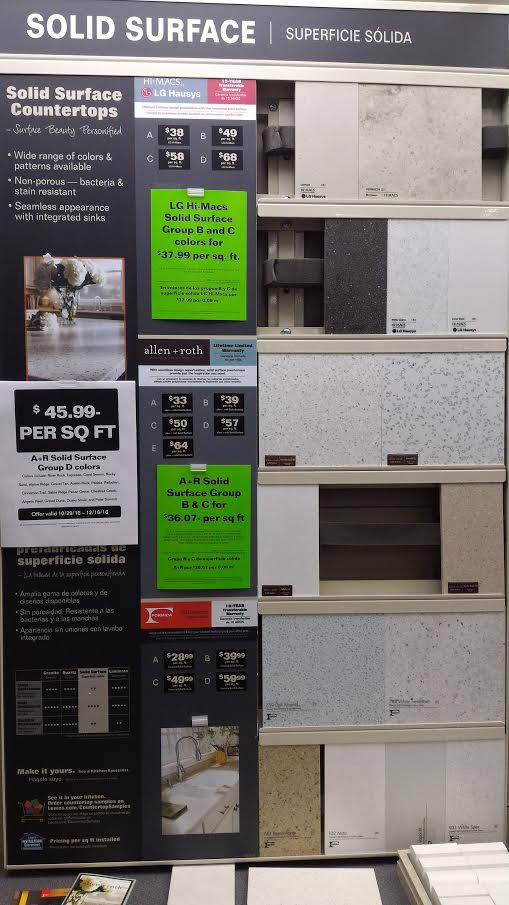
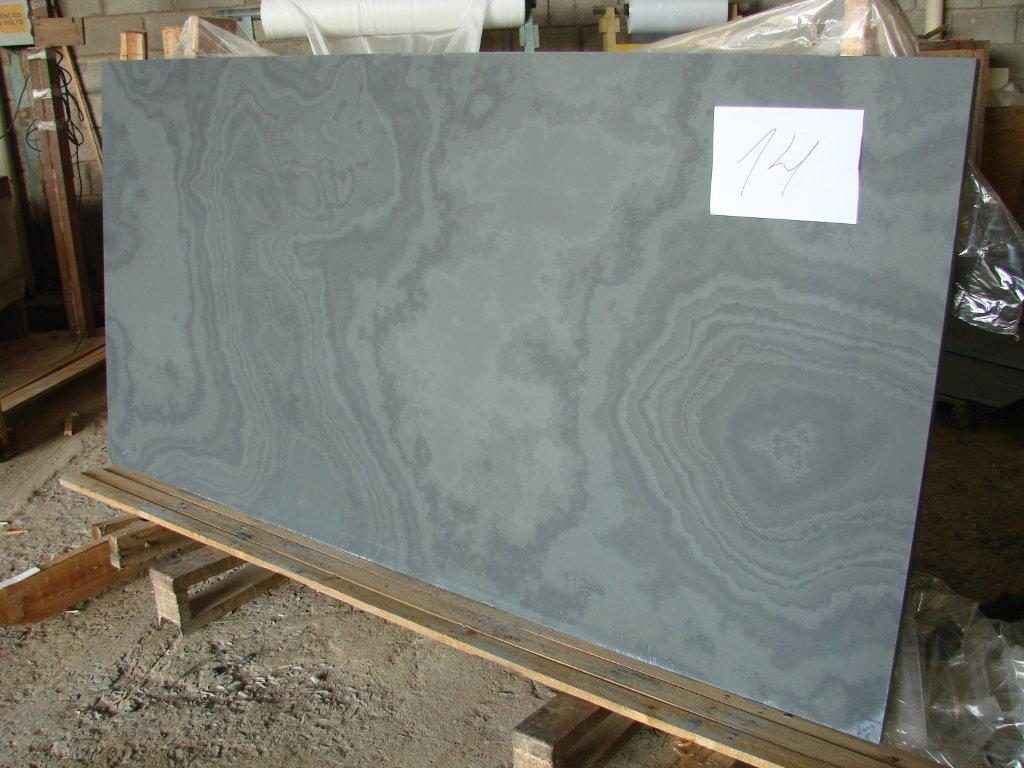
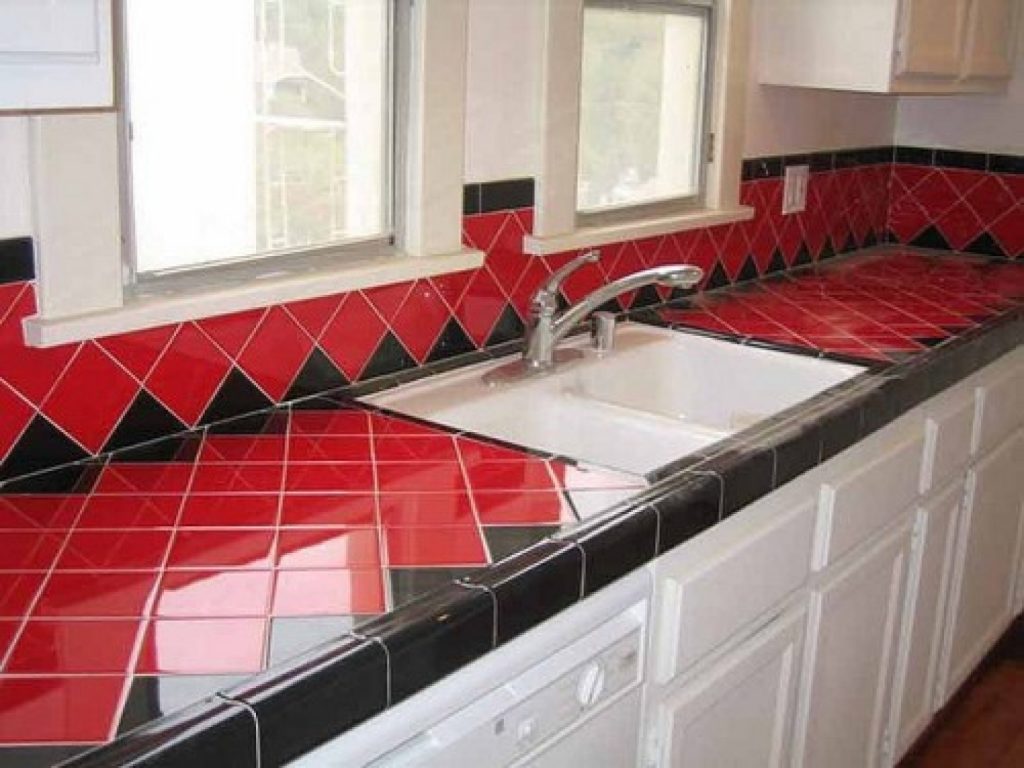
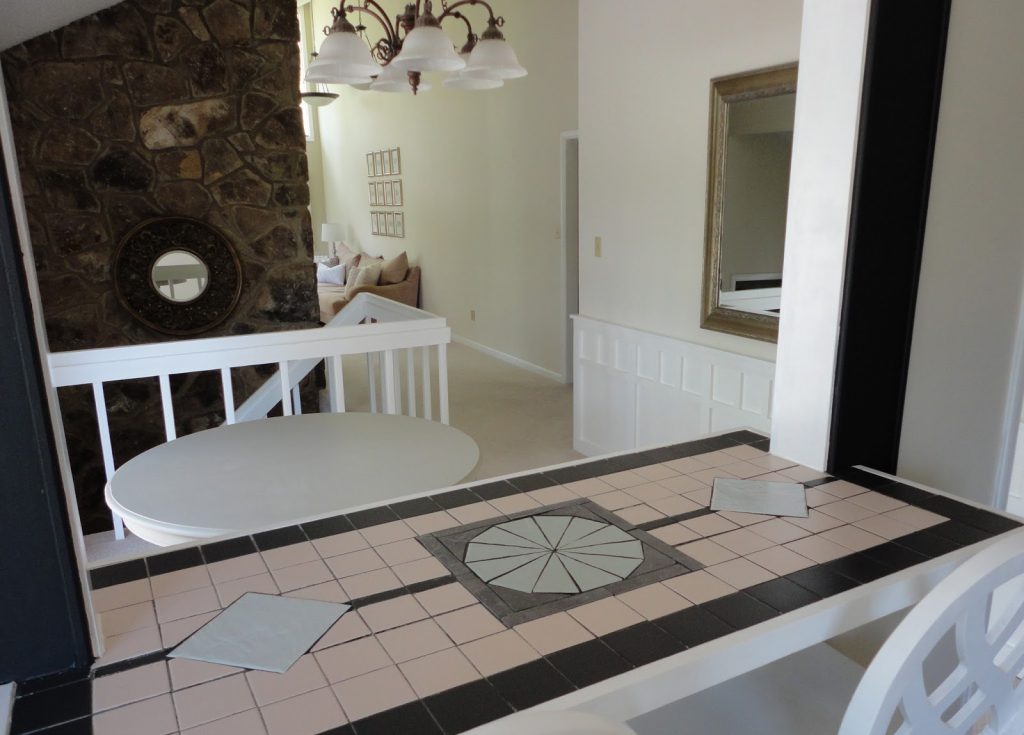
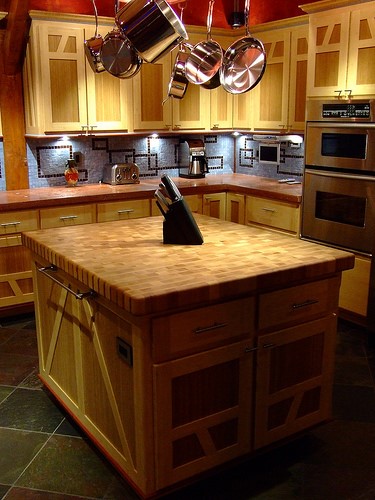
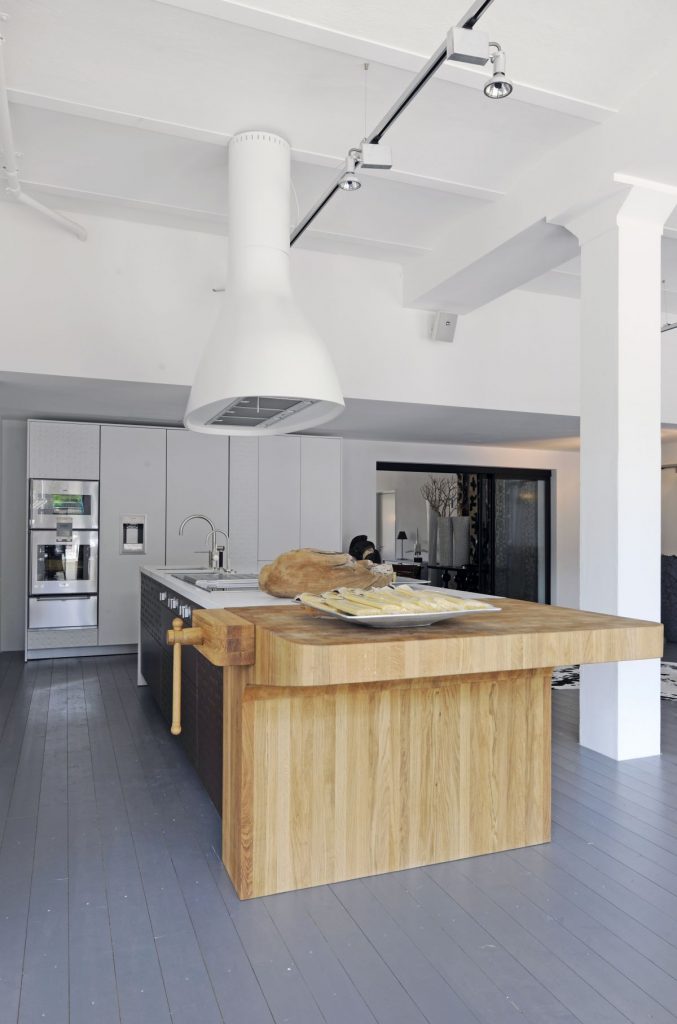
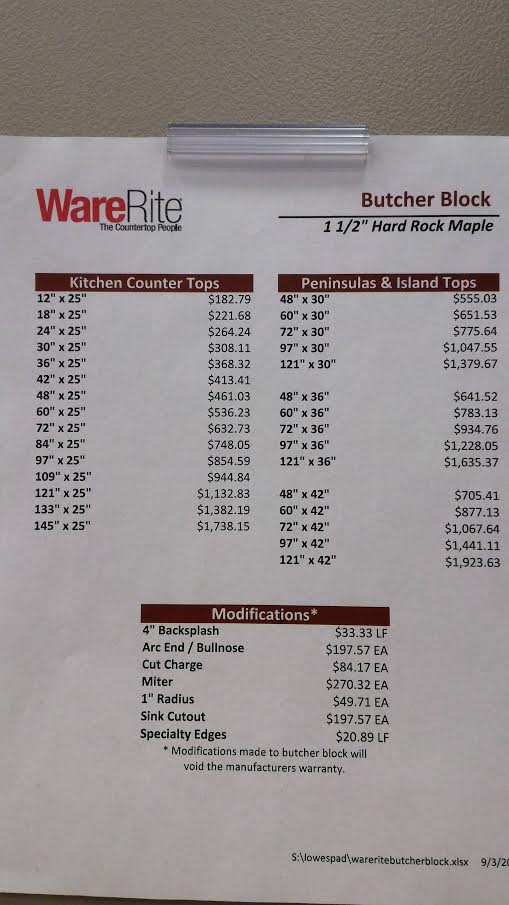
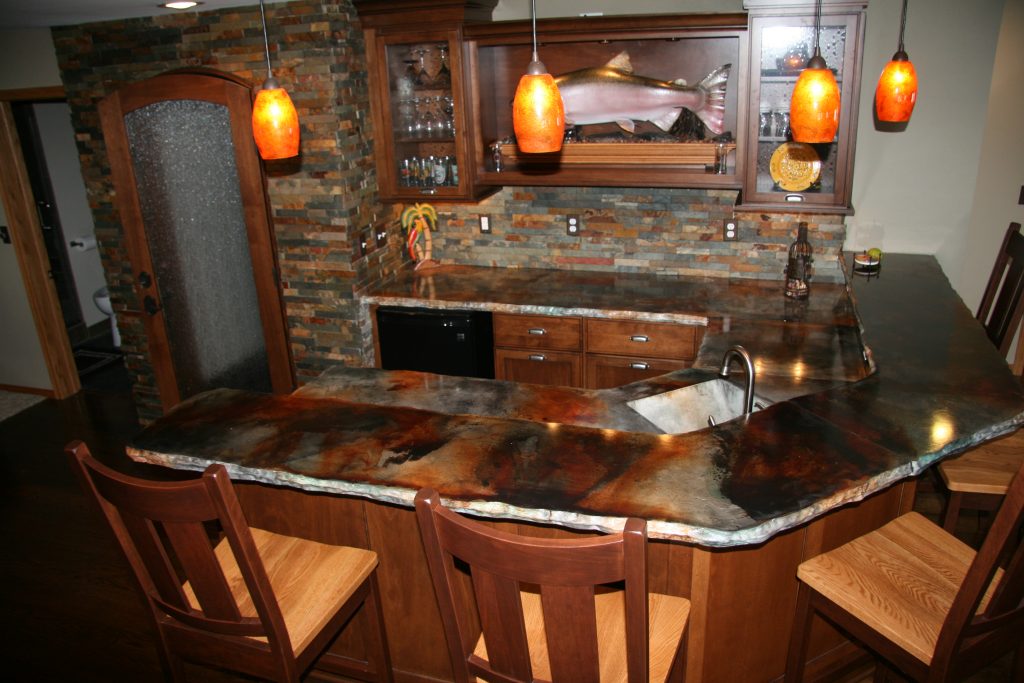
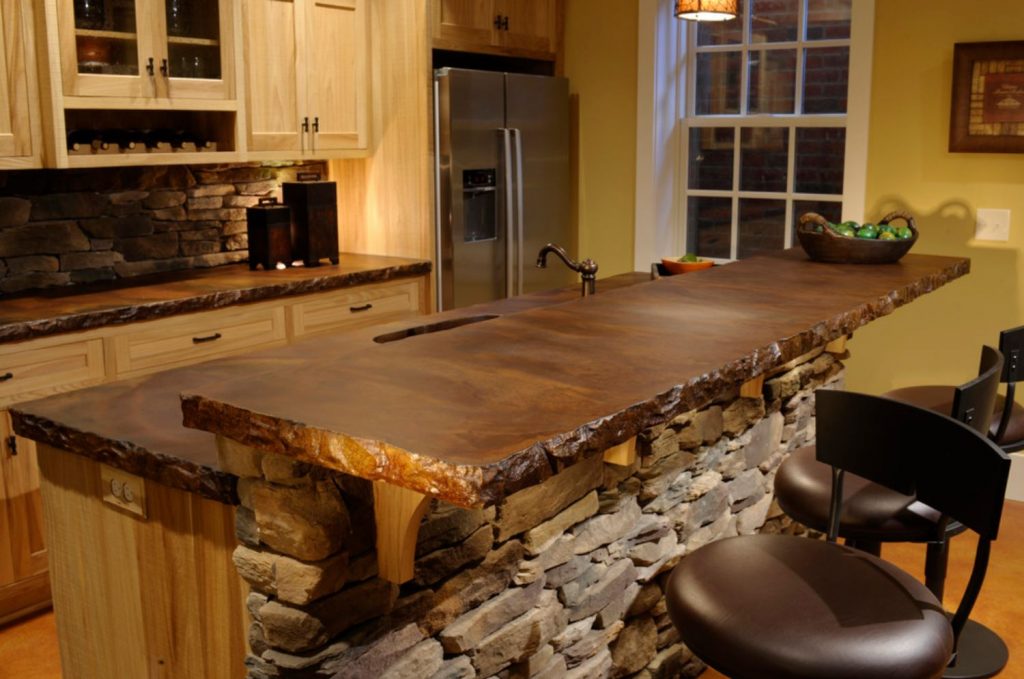
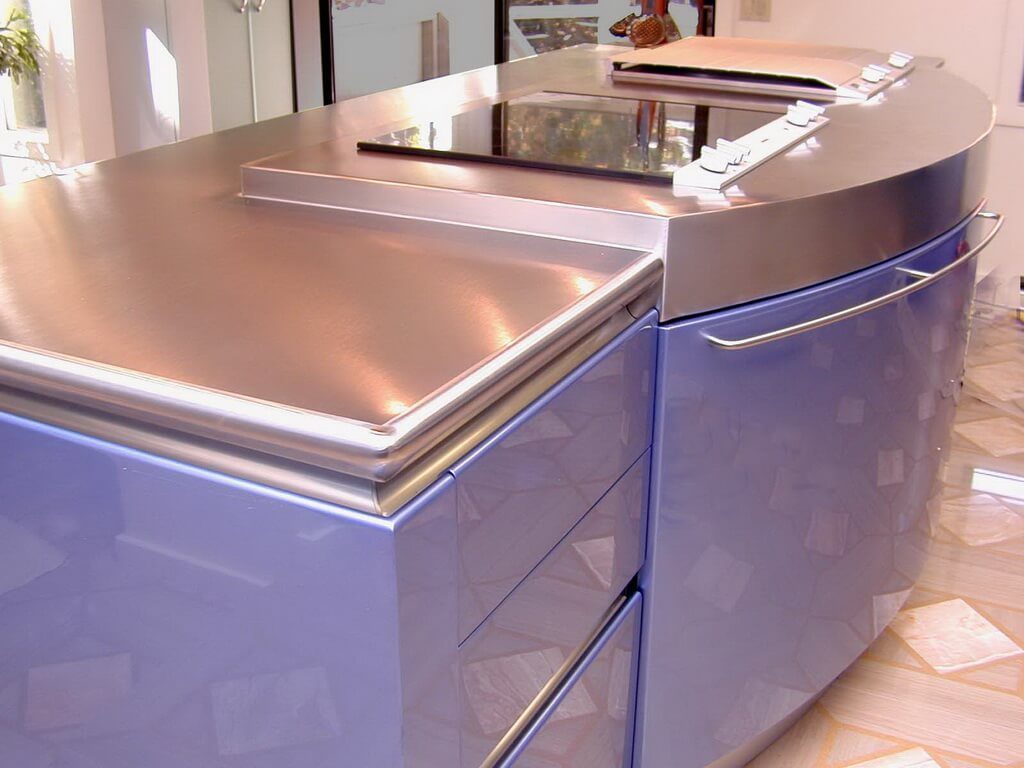
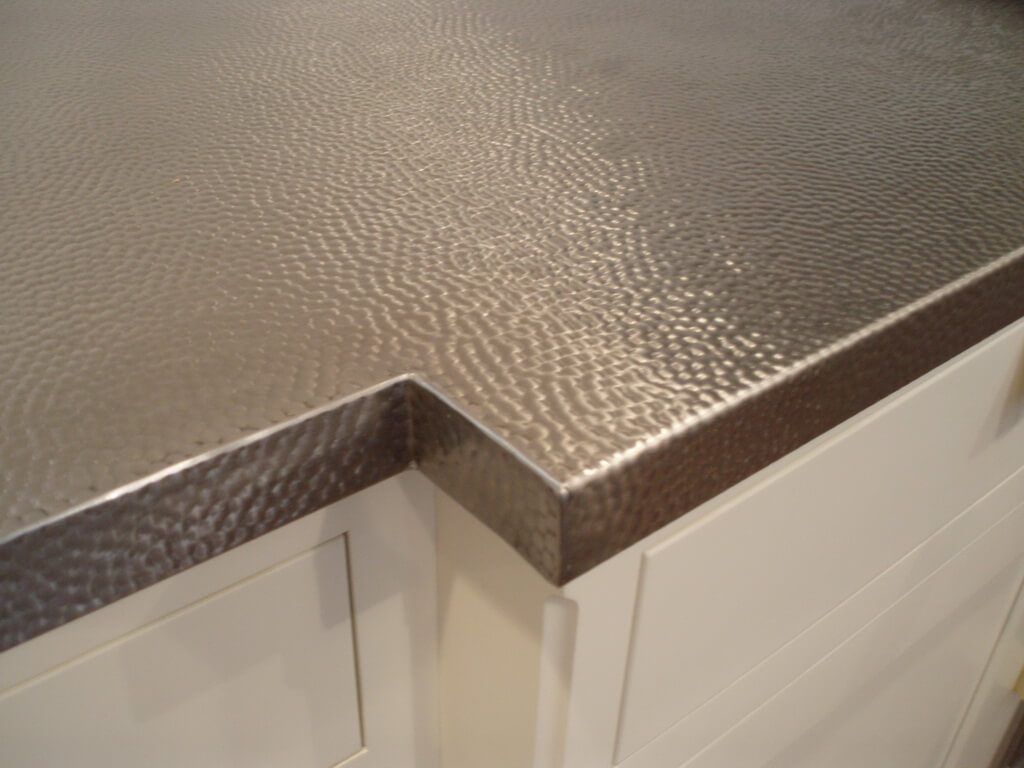
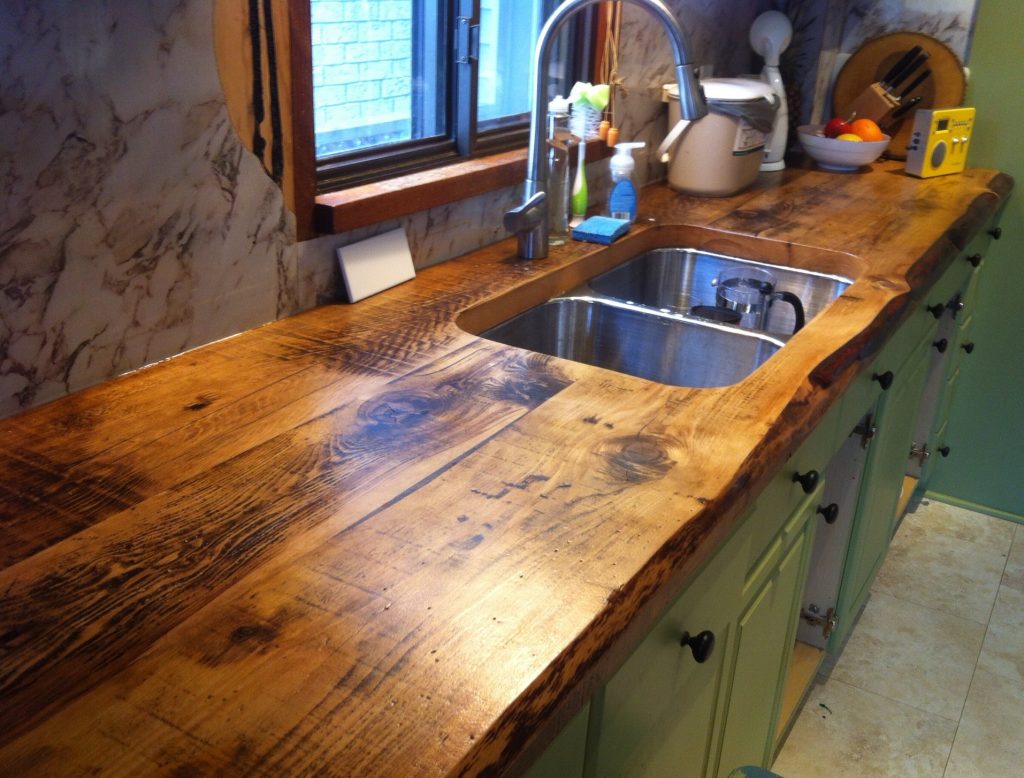
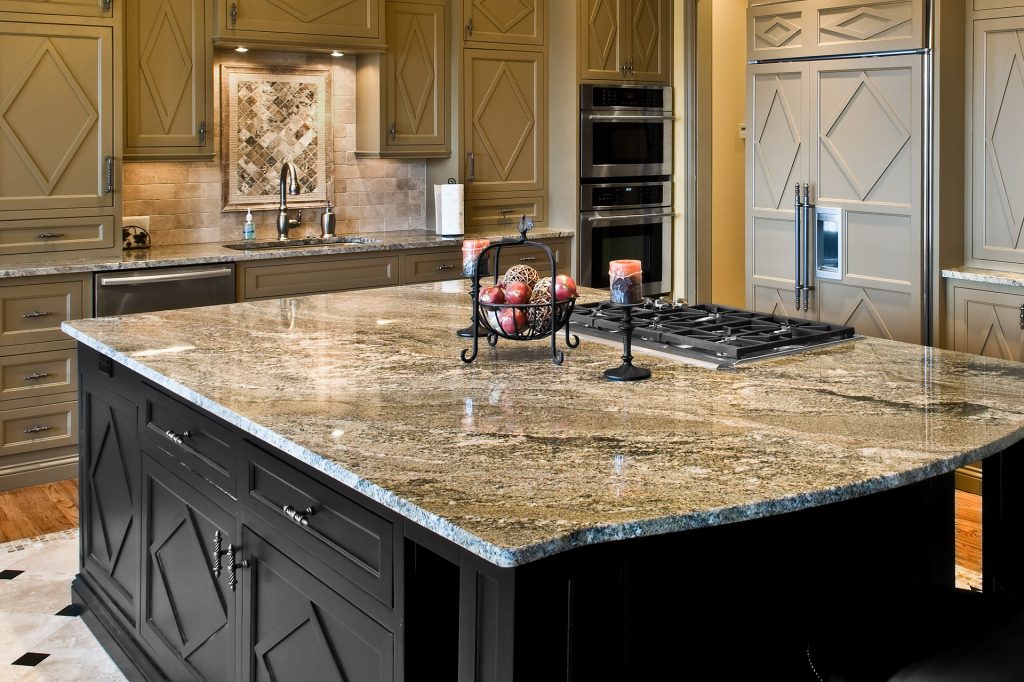
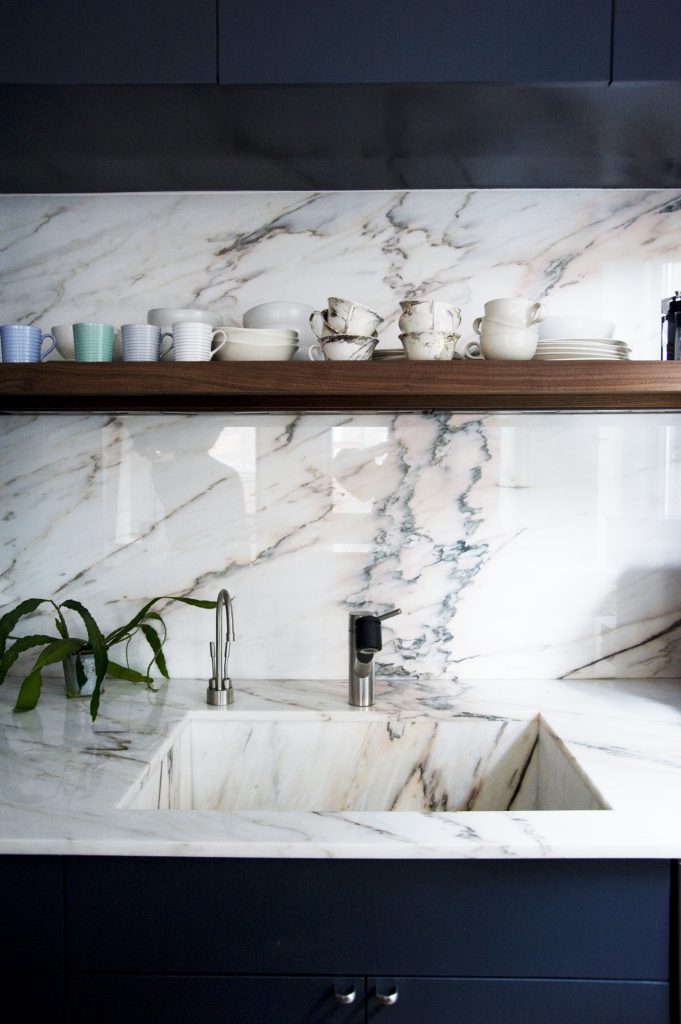
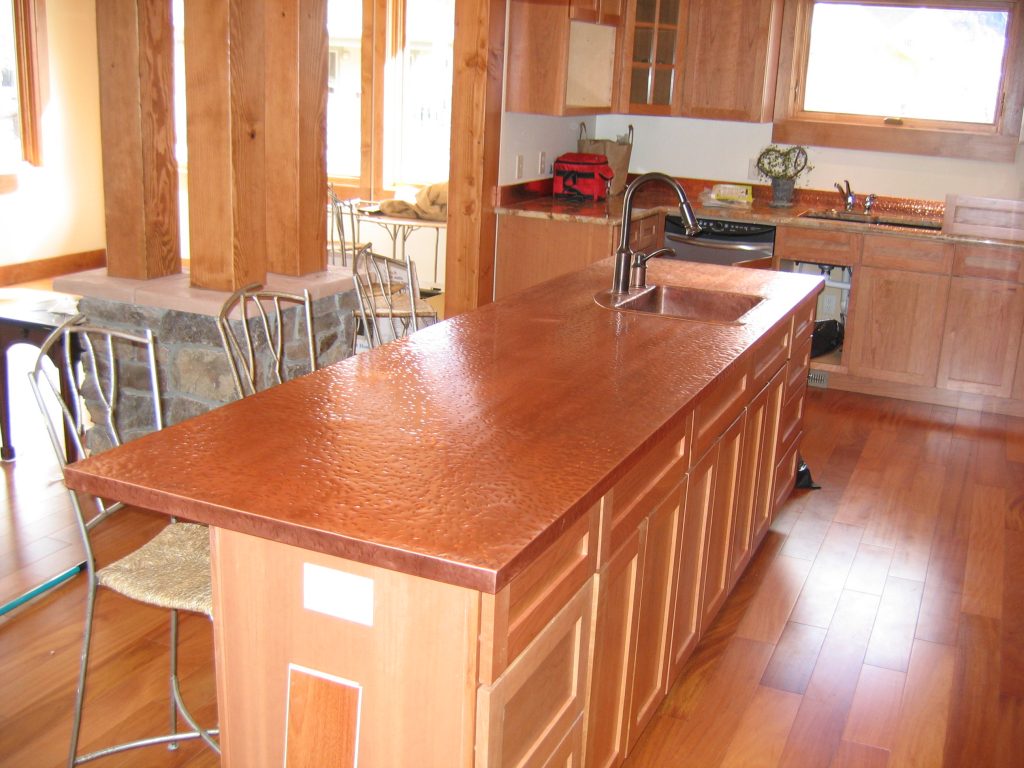
Interesting! I didn’t know there are two grades of soapstones. Are soapstones with green or blue hues considered lighter varieties? I read a post saying that soapstones can have a blue or green tint, and those with blue or green hues are rare and more expensive than black/dark gray ones.
I’m looking for a primitive look on kitchen countertops, is reclaimed wood the best overall for achieving that?
Reclaimed wood provides a nice way to get a rustic look for your kitchen, so if you would like to achieve a rustic look with the countertop, then it’s probably the way to go, but the final product will depend a lot on the execution.
This very informative guide provided much help in choosing the kitchen worktop surface!